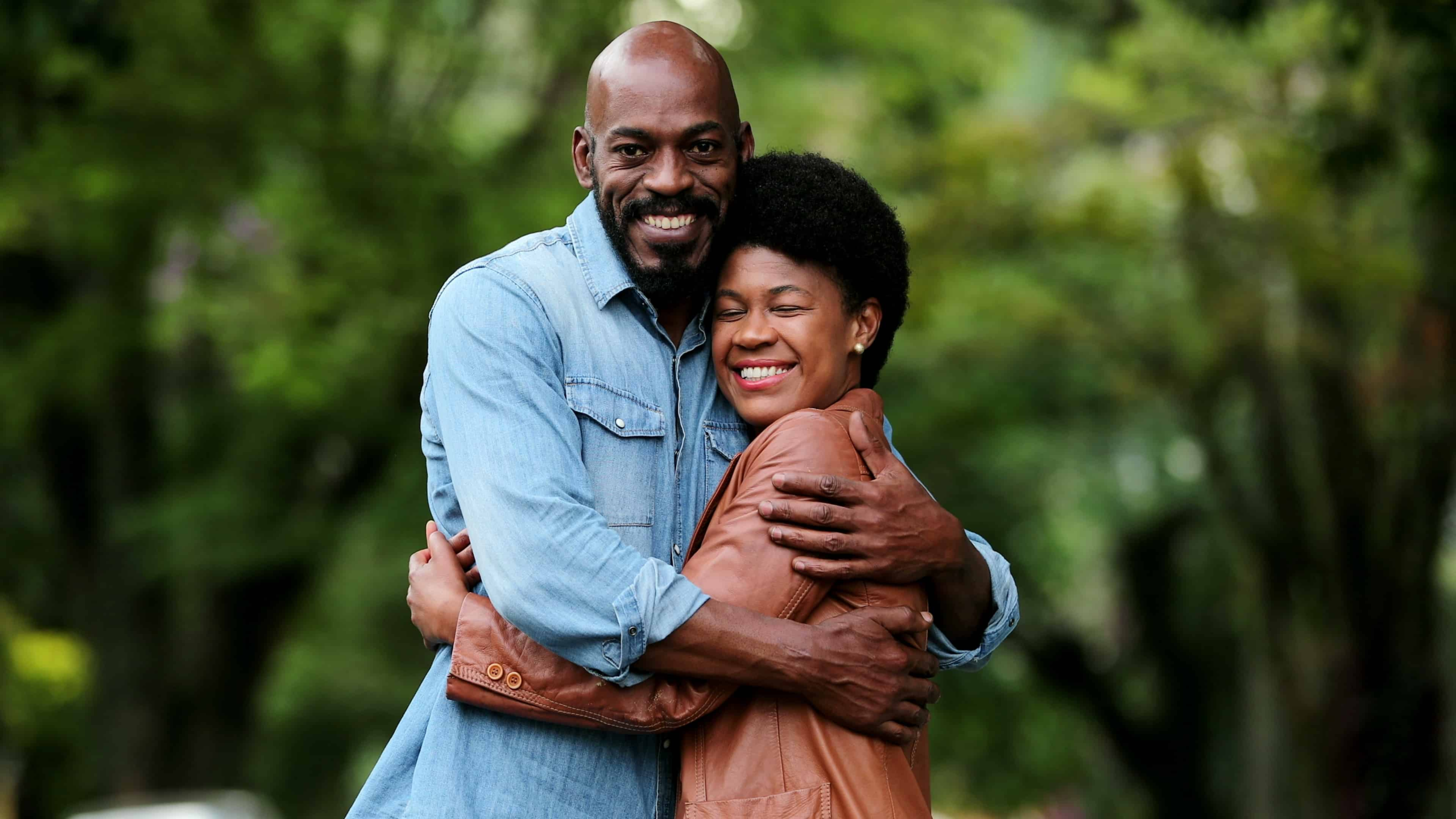When we lack emotional intimacy (emotional support/ feeling emotionally connected), chances are we lack sexual intimacy (having sex), physical intimacy (physical touch and affection), spiritual intimacy (having shared purpose or values), and experiential intimacy (one one-on-one interaction where you spend quality time together).
When we lack emotional intimacy, there is no quick fix; in other words, don’t expect one date night to turn everything around. But before giving relationship advice on improving emotional intimacy, we will explore couples’ common mistakes.
Related Reading: The Signs Your Relationship Lacks Emotional Intimacy

Why is there no emotional intimacy in my marriage?
The longer two people are together, the more they tend to think they understand each other completely. Over time, we start to assume we know what the other person is thinking, why they’re thinking it, and what they’re going to do about what they are thinking. Many of us even go so far as to assume the intentions behind our partner’s thoughts and reactions.
For example, if one person makes a facial expression, the other might think they know exactly why it was made and what it signifies.
The issue here is that people evolve and change over time. Our thoughts, beliefs, and behaviors are all subject to change as we mature.
However, in many relationships, there’s a tendency to hold onto the image of our partner as the person they were when we first met them, regardless of how many years have passed. We often don’t allow our spouses the space to grow and develop along with us.
Over time, these assumptions and past hurts can create problems in our relationship. Our relationship can start to feel like we are navigating a minefield, where each step carries the risk of triggering an explosion.
Typically, these land mines can be triggered by simple things like running late, forgetting to take out the garbage, a disappointed look, or a tense tone of voice; then, a chain reaction occurs, leading to World War 3.
As you can imagine, this couple probably has little to no sex life, they lack an emotional bond and probably do not experience positive feelings when they think of each other. If the relationship does not course correct, the chances of divorce are high.
Related Reading: Why Relationships Fail
Is there any hope when a marriage lacks emotional intimacy?

Simply put, yes, there is. And it starts by eliminating the land mines.
While we can’t eliminate all the land mines, we can strive to detach ourselves from our assumptions, triggers, and past wounds. By addressing these things, we can disrupt the chain reactions that prevent us from being emotionally intimate with each other. When we refrain from reacting, our partners have nothing to fuel the conflict, and the chain reaction gradually halts.
In “The Book of Joy,” Douglas Abrams highlights the potential to create emotional intimacy in relationships when we choose empathy over immediate reaction. He suggests shifting our mindset from self-righteous indignation—”how dare they speak to me like that”—to compassionate understanding—”they must be exhausted to speak to me like that.”
Choosing a different approach is key to building emotional intimacy in our relationships, which is why we have compiled a list of six things that we encourage couples to change. These tools will help couples rebuild emotional intimacy in marriage.
How can we increase intimacy in a relationship?
1. Be on the same team

Couples sometimes fall into a pattern of trading favors or keeping score. They might say things like, “You went out last week, so it’s my turn this week,” or “I did the garbage, so now it’s your turn to do the laundry.”
This behavior drastically affects not just emotional intimacy but sexual intimacy as well, as both partners keep tabs on who has done what for whom.
It may start to feel like the only solution for one person to get more of what they want is for the other person to sacrifice something—whether it’s their time, money, or energy—so the other can have what they desire.
This notion sets us against each other and fosters a dynamic where, instead of being allies, we’re competing in a game where one person’s gain is seen as another’s loss. When couples perceive themselves as being on opposing teams, they’re more inclined to argue and safeguard their own interests, even at the expense of their partner’s.
What’s seen as a win for one becomes a loss for the other rather than a shared victory. In relationships perceived as a win-lose situation, physical affection, and emotional closeness rapidly decline as someone is constantly losing.
As we move away from thinking as adversaries and embrace a mindset of being on the same team, we begin to consider how each partner can achieve more of their desires, leading to greater relationship satisfaction for both. Instead of solely prioritizing our needs, we begin to think in terms of “win-wins”—solutions that mutually benefit both partners.
While we may not always attain everything we desire, we can pose questions that broaden our perspectives and allow us to consider possibilities rather than dwell on limitations. One question you can ask in your relationship is: “What would it look like for both of us to achieve what we want?”
By posing questions like this, we broaden our scope of possibilities. When we remain on the same team, we can collaborate and craft empowering solutions that help us increase emotional intimacy in marriage.
How can we practice being on the same team?
Consider adopting the mindset that victories for your partner or loved one can also be victories for you. This shift in perspective opens up more possibilities and encourages greater creativity.
Select an issue that has been challenging for you and begin a conversation with, “How can we both achieve our goals and have more of what we want?” Allow each person to express their thoughts and feelings, and then work together to negotiate and find a solution. Approach this process with sensitivity and innovation rather than defensiveness and resentment.
2. Allow your differences to bring you closer

People often choose partners who complement them, like yin to their yang or peanut butter to their jelly. However, as time goes on, these differences can become sources of frustration that wreck intimacy in marriage.
Yet, despite their challenges, differences bring variety and support that we would miss if we had chosen a partner more similar to ourselves. Differences can inspire us and encourage us to try new things, expanding our worldview.
However, even simple differences can sometimes be painful.
Take Joshua and I. Joshua loves change. Whenever he feels stressed or anxious, he rearranges our furniture, tries out new hobbies, or makes impulse purchases or decisions to shake things up and regain his sense of calm.
On the other hand, I prefer stability. I find comfort in the familiar and dislike sudden changes that disrupt our carefully planned schedule. Whenever I face challenges or feel overwhelmed, I want a familiar routine, such as working out, going for walks, etc.
I’ll let you imagine how this plays out when we are both stressed; needless to say, more often than not, it’s not good for our marriage!
How should we allow our differences to bring us closer?
Instead of viewing differences as drawbacks, couples can shift their perspective to recognize how each person’s unique traits contribute to the relationship’s richness.
For instance, my husband’s openness to change ensures our relationship is always exciting and dynamic. Meanwhile, my preference for routine fosters stability and enables us to cultivate deep and lasting friendships. We can create a harmonious balance that enhances our relationship’s strength and resilience by embracing and celebrating our differences.
Where should we start?
To celebrate our differences, we can begin by each making a list of the things that cause us trouble. Then, we sit down together and ask, “How can we change these struggles to make them feel better for both of us?” No difference is too small to talk about. Let’s find a solution that works for both of us if something upsets you.
Small things that bother us may include:
- I prefer turning off the lights, but you often leave them on.
- You spend more money on clothes than I’m comfortable with.
Bigger issues might involve:
- I’m trying to use positive language with our kids, but you tend to reprimand them.
- Spending time with my family is important to me, but you’re not interested.
Note: Issues may not be resolved immediately, but being open to considering new solutions can go a long way in making each person feel understood and more willing to collaborate.
How can we practice allowing our differences to bring us closer?
Discuss a difference that has caused frustration. Instead of dwelling on the irritation, acknowledge the benefits each person brings because of it. Celebrate each other more for win-win situations. Write down notes afterward to remember together.
3. Assume the Best instead of the Worst

When upset with our partner, we have two choices in responding. We can assume the worst and criticize (which can destroy emotional intimacy), or we can see the best in them and remind them of that version of themselves (which can improve emotional intimacy).
Imagine which approach gets a better response. Assuming the worst involves imagining harmful intentions behind someone’s actions, we express this in statements like, “You meant to hurt me” or “You did that on purpose because you knew it would drive me crazy.” Statements such as these presuppose a negative intention behind the action.
Upon closer examination, it becomes evident that these assumptions stem from hurt and fear, resulting in distrust and defensiveness. We can transition from presuming the worst and forming accusations against someone to presuming the best and adopting a curious stance.
Rather than assuming negative intentions, we can actually consider that our partner had positive intentions but may have fallen short for some reason. We approach this with curiosity, asking questions with care and connection instead of blame and accusation. This simple shift will profoundly start to rebuild emotional intimacy.
Rather than jumping to conclusions like, ‘You were late last night to retaliate for my lateness last week,’ we can change our approach to something like, ‘I noticed you came home late last night. I was concerned you might be upset with me for being late last week. Can we talk about it? Are you upset with me?’
Instead of accepting our negative thoughts, we can recognize that many of our hurt feelings stem from our interpretations rather than the actual events. We overlay our assessments and opinions onto neutral situations.
For example, I might convince myself that my husband leaves his laundry for me to handle, but he may or may not have such an expectation. My assumption influences how I perceive his action of leaving clothes in a pile.
Instead of assuming, we can explore our reactions. We can meditate, exercise, talk with friends, or seek therapy to understand why we feel upset. Then, we can approach the conversation with vulnerability instead of accusation. Asking curious questions rather than assuming intentions can lead to a more constructive dialogue.
How can we practice assuming the best?
To practice assuming the best, think about a situation involving someone you care about where you felt upset. Reflect on the reasons you believe they acted the way they did. If your thoughts don’t assume the best—that the person cares about you and has positive intentions—try reframing your perspective to assume the best about their actions.
Then, instead of jumping to conclusions, get curious about what happened. For instance, recently, my husband disappeared while we were at our friend’s house. I was surprised and upset when I came home to find him sleeping. However, I later discovered that our daughter had an accident and needed new clothes, which we didn’t have with us.
He had taken her home, given her a shower, and ended up falling asleep. I realized he left to take care of our daughter, not to abandon me. Remember: All relationships thrive when we assume the best and remain curious rather than assuming the worst.
4. Learn to share the why

I’ve been in many arguments where things were getting intense, but just before things got out of hand, my husband or I stopped and explained why we were defending our position. This helped calm things down and changed our anger into compassion.
Remember above when I mentioned that Joshua loves change, and I don’t? Well, here is how we discovered this phenomenon while becoming more emotionally intimate in the process.
One day, I arrived home to find all the furniture in our living room rearranged. I was surprised and not very happy about it. As frustration brewed, Joshua explained that he rearranged everything because he felt it would bring fresh energy to the room. I was taken aback because I preferred things to stay the same.
Amidst our growing tension, we both paused and shared. Joshua talked about how he felt stress from work and how change allows him to feel refreshed and stimulated. As he shared, I began to realize I found comfort in familiarity. Understanding and communicating each other’s perspectives helped us connect deeper, acknowledging our differences while appreciating our unique quirks.
How can we practice sharing the why?
The next time you want something your partner doesn’t understand, explain why it’s important to you. Likewise, if your partner desires something you don’t get, ask them about the reasons behind it.
5. Focus and say what you want, not what you don’t want

I remember one of our first therapy sessions where our therapist pointed out that I tended to focus more on what I didn’t want rather than expressing what I did want. Initially, I found it challenging to accept his observation.
With time, I realized that although I started by expressing my sincere desires, I often fell into a pattern of complaining afterward. I convinced myself that if I didn’t get what I wanted, complaining was the next step. However, I came to understand that this wasn’t true. We always have the option to share our desires instead of resorting to complaints.
In my relationship, like many others, my complaints often triggered feelings of shame and inadequacy in my husband. By constantly pointing out what wasn’t working, instead of acknowledging what was, he felt rejected and incapable of making me happy.
Through my journey of personal growth and supporting clients, I’ve realized that releasing complaints and criticism can feel like we’re betraying ourselves or giving up. I used to worry that others wouldn’t see the need for change if I didn’t express my suffering.
But inspiration holds more power to transform a situation than negativity. For many of us, complaining is a habit we picked up in our youth, perhaps reinforced by cultural norms. In the United States, for example, people often bond over shared complaints.
Shifting our focus from complaints to desires opens up a whole new world. When people feel less blamed, they’re more willing to collaborate. This shift has positively changed many couples I’ve worked with.
How can we practice saying what we want?
Next time you feel like complaining, take a moment to dig deeper. What desire lies beneath your complaint? For instance, if you’re frustrated with someone leaving clothes on the floor, you could express how a tidy room would help you relax and maybe even feel more romantic. It can be tough to access your desires when there’s a backlog of resentment, but with persistence, you can uncover them.
6. Release the constant need to defend yourself

The central idea of “Undefended Love” by Jett Psaris and Marlena Lyons is that attempting to justify or defend ourselves only blocks an emotional connection. This is significant because numerous conflicts stem from one person accusing another of something.
When someone is accused, they often feel the need to defend themselves. This leads to conflicts revolving around our interpretations of each other, rather than truly understanding each other’s pain and challenges.
While it’s difficult to perceive pain amid blame, we can learn to transform accusations into vulnerable expressions. Additionally, we can choose to disarm ourselves, changing how we react to our partner’s accusations.
Recognizing that a complaint often signifies a struggle on the accuser’s part, we can opt to delve into that struggle rather than immediately becoming defensive. Admittedly, this approach isn’t simple, and it requires practice to become proficient, but it has been instrumental in preserving numerous relationships.
We have a client whose husband frequently accuses her of being selfish and doing only what she wants. Whenever he makes this accusation, her immediate reaction is to defend herself by pointing out that she is not selfish.
I advised her to try to understand what her husband was feeling. When she put herself in his shoes, she realized he feared being abandoned. He felt left out when she made important decisions without consulting him, and instead of admitting this, he would lash out and call her selfish.
His accusations ceased when she stopped defending herself and instead expressed care and concern, letting him know she could understand why he was afraid she’d leave.
It’s common to think that if we don’t defend ourselves, an accusation will forever define us. We don’t realize that defending only worsens the accusation, whereas exploring it brings understanding that dissolves it.
How can we release the need to defend ourselves?
The next time you’re tempted to defend yourself, consider what your partner is struggling with but not saying. Get curious and ask caring questions to understand their challenge. See if you can let go of taking the accusation personally and consider that your partner is feeling vulnerable. We’ll always learn more about our partners and ourselves when we don’t choose to engage in a battle of defensiveness.
Conclusion
When searching for how to repair emotional intimacy in marriage, you may find a myriad of answers. We recommend that you start by being on the same team. People on the same team look at life as if it’s them against others. This attitude opens the door to more emotional intimacy.
As you begin the journey of restoring emotional intimacy, remember that it’s not about being perfect but about being willing to learn, grow, and support each other through the ups and downs of life.
So, as you embark on this journey, remember to celebrate your successes, learn from your challenges, and cherish the bond that you’re nurturing together.












